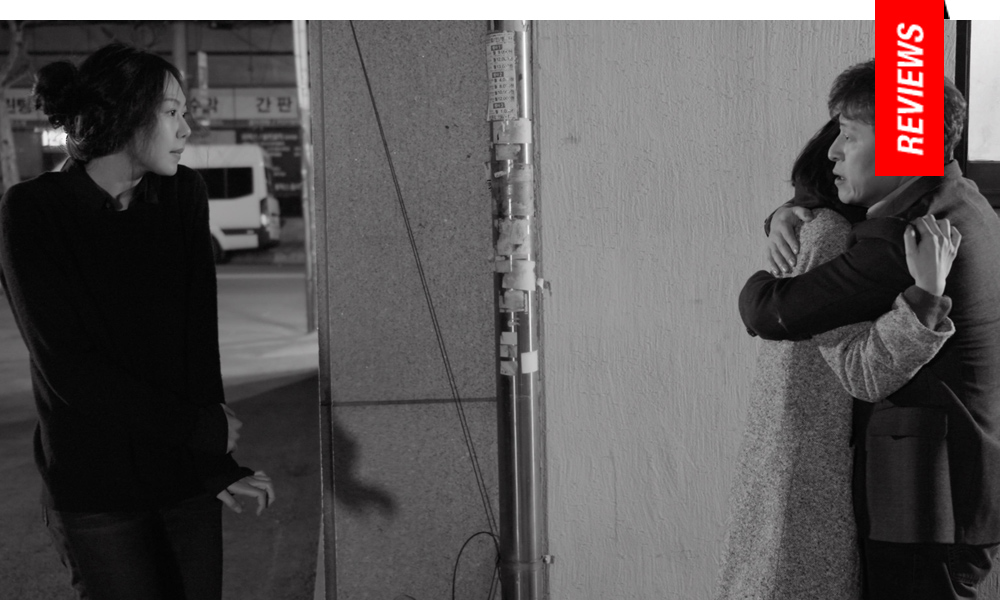Three Women: Sang-soo Goes for Slight(ly) Sober in Black and White Mix-up
When his wife Haejoo (Cho Yun-hee) is convinced her husband Bongwan (Kwon Hae-hyo) is having an affair because it seems he’s recently lost weight, she stumbles upon a love poem evidently intended for his mistress. Making a surprise visit to her husband’s office, where he works as the head of an independent publishing house, she assaults his assistant, Areum (Kim Min-hee), assuming she is his lover. However, it’s Areum’s first day on the job, which leads to a traumatic conversation between the two women, forcing Bongwan to step in to acknowledge the note was intended for his former lover and employee Changsook (Kim Sae-byuk). After a meal and lots of Soju, Bongwan convinces Areum to give the job another chance when they’re suddenly interrupted by the return of Changsook.
If anything, The Day After feels a bit more morose than many of Sangsoo’s latest films, with Bongwan maltreating all three of the women in his orbit, albeit in different ways (not to mentions, this is also divorced from the usual scenario as it doesn’t involve a film director in search of women or the inspiration he’s lost along the way).
As in keeping with his recent slate of titles, the film favors the perspective of Kim Min-hee’s Areum, a woman defined seemingly by her staunch religious beliefs. While it doesn’t afford the actress the same reign as this year’s On the Beach Alone at Night which nabbed her Best Actress in Berlin, she has the most amusing and least predictable vantage point in this familiar set up of a man stuck between his wife and mistress.
The narrative consists of several long-running conversations, sometimes broken up by moments we sometimes assume are flashbacks but are eventually slyly revealed to be a continuation of the present sequence, such as the surprise reappearance by Changsook. A major upset occurs in the rather violent face-off between Min-hee and Cho Yunhee, which reveals a bit more physicality than we’re accustomed to in a Sangsoo feature.
Throughout it all, a series of scenes featuring characters breaking down into ugly, sometimes drunken sobbing is accompanied by the film’s wonderfully overbearing keyboard inspired score, which lends these moments a droll dimension. Although The Day After seems a bit too trivial to compare to some of Sangsoo’s more substantial titles, this melancholy faced comedy should amuse the director’s fan base.
Reviewed on May 22 at the 2017 Cannes Film Festival – Main Competition. 92 Mins
★★★/☆☆☆☆☆
